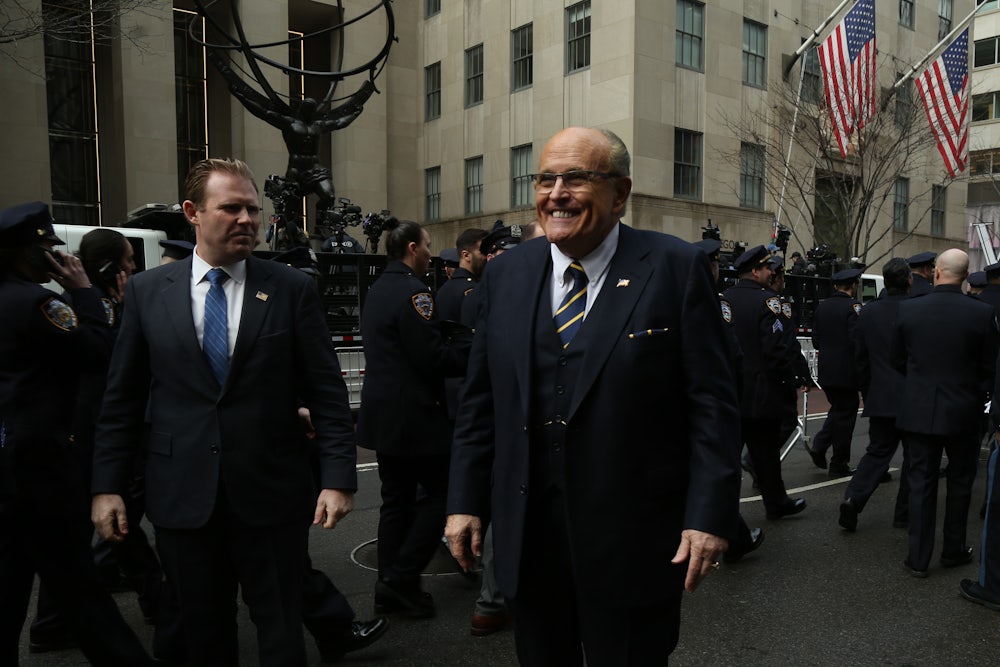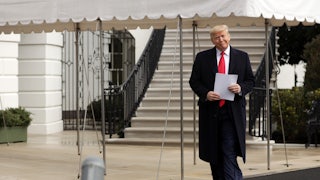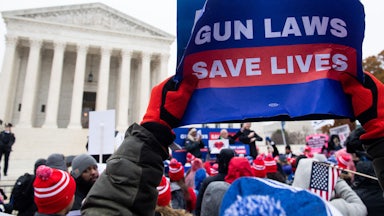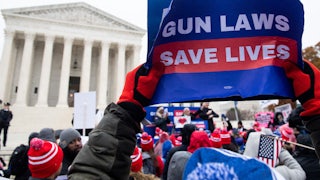The news that Rudy Giuliani is open to making an about-face and answering the House January 6 committee’s questions is a potentially explosive development that could redirect the course of the entire investigation.
What Giuliani has to share could be some of the most valuable information the committee will obtain. Giuliani was Donald Trump’s personal attorney while Trump was president and usually the face (besides Trump himself) of the former president’s most outlandish actions while in office. The former New York mayor was part of the inner circle coordinating the push to block Congress from certifying that Joe Biden won the election fairly, from the Willard Hotel command center just down Pennsylvania Avenue from the White House. He has also been Trump’s sounding board and cheerleader for the most bizarre conspiracy theories and false claims the president has peddled. His information could fill in the most important holes about Trump in ways that no one else’s could.
But attorneys and experts who specialize in congressional investigations said in interviews Monday that it’s really not clear how willing Giuliani is to work with the committee—or over what. What little information Giuliani is revealing about his newfound willingness to talk with the committee creates more questions than answers. If he does talk, though, it seems pretty obvious what the committee will want to talk to him about.
“Clearly all investigative roads lead to Donald Trump,” said Norm Eisen, the former co-counsel for the House Judiciary Committee during the first Trump impeachment trial. “So there’s a myriad of indicators of that, but the desire to talk to Giuliani is the latest.”
Giuliani was not always the cartoonish, bumbling legal sidekick he is today. Once he was considered the front-runner in the Republican primary for the presidency. Before that, he was the leader of the largest city in America. And before that, and most relevant for present purposes, he was the United States attorney for the Southern District of New York. Even as he’s lost a step or three, he still must understand the intricacies of serious federal legal inquiries. So Giuliani could just be looking to give the bare minimum of cooperation to the panel and thereby avoid facing a referral to the Justice Department for defying a subpoena.
“I still feel a little bit like I’ll believe it when I see it,” said Barbara McQuade, a University of Michigan law professor and former U.S. attorney for the Eastern District of Michigan. Giuliani could “fake it,” cooperating with the committee so he’s not charged with contempt of Congress, McQuade offered. “It may be that that’s all he’s doing. But if he wanted to, he could be the John Dean of this moment. He was in the room, he is at the heart of the storm here. He absolutely saw where all the bodies are buried. So I think if he wanted to, he could be extremely helpful. I also think he is extremely sophisticated.”
McQuade continued: “We write him off as a crackpot now, but don’t forget that there was a time when he was a U.S. attorney for the Southern District of New York handling very high-profile Mafia cases, public corruption cases, and corporate fraud insider-trader cases. He knows all the tools of the Justice Department, and he knows the department has him in a very bad spot.”
Last year federal agents with the Justice Department raided Giuliani’s office and home, seizing his electronic devices (think cell phones and computers) as part of its investigation into Trump’s business dealings. In the information on those devices, they may already have important and incriminating proof of Giuliani “plotting a coup,” McQuade offered. “So what is it you can do? You can offer your testimony in exchange.”
It wasn’t supposed to be like this for Giuliani. His association with Trump over the years has been a classic story of Icarus getting too close to the sun, and his lifetime of work will be eclipsed by his role in trying to undermine the American democratic system. Pride, in other words, might be the main driver, suggested Eisen.
“It would be a precipitous come-down for a man who, at one point, was the most famous prosecutor in America, heralded as a modern-day Eliot Ness, to now have to take the Fifth Amendment,” Eisen said. “It just would be devastating to his ego.”
Publicly, the committee has shown no sign of looking to bargain with Giuliani. “Mr. Giuliani’s appearance was rescheduled at his request. He remains under subpoena, and the Select Committee expects him to cooperate fully,” a committee aide said in a statement.
Whatever Giuliani’s motivations, it’s not enough to stop the committee in its tracks. The January 6 committee has already proved that without the cooperation of the biggest-name figures, it has been able to glean important and devastating information about how those people took extraordinary steps to try to flip the election to Trump. But Giuliani could still add to that.
“His vanity point is incredibly valuable to the investigation, for a lot of reasons,” a former congressional investigator who now works at a major Washington law firm said, adding that Giuliani’s credibility as a witness has waned substantially. “He has been all over the map on public statements, which [makes] him” difficult to take seriously.
Giuliani has found himself in a precarious position. As various serious investigations and legal inquiries weigh down on him, the tools he has at his disposal are few, and as a former prosecutor, he clearly knows that. He has to decide now whether what’s at stake for him outweighs what’s at stake for Trump.
“The Trump machine, I’m sure, is already fired up to either bring him back into the fold or demolish him,” the former investigator said. If Giuliani were to publicly help the inquiry, it would be the clearest defiance of Trump that the former president could imagine. There would be no going back. “There’s that other factor here, the sort of witness intimidation factor. Who knows how he’ll weather that crucible.”






